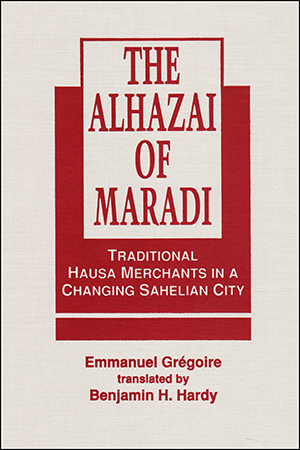
- 1992/185 pages
The Alhazai of Maradi:
Traditional Hausa Merchants in a Changing Sahelian City
Hardcover: $42.00
ISBN: 978-1-55587-278-6
The West African town of Maradi, capital of a prestigious nineteenth century Hausa chiefdom, became a trading center during the colonial period, and after Niger's independence in 1960, its prosperity and growth accelerated. Maradi's population increase (from 9,000 inhabitants in 1954 to nearly 100,000 by 1986) was accompanied by rapid social change, including the emergence of a rich business class known as the Alhazai, men steeped in the values of Islam but skilled in merchant capitalism. (Alhazai is the plural of the Hausa honorific Alhaji, accorded to any Moslem who has made the Hajj, or pilgrimage, to Mecca.) Highly esteemed in Niger, the Alhazai proudly bear the title as a symbol of their economic success. This book traces the history of Maradi and the accession to power and prestige of the Alhazai: When and how did they acquire their wealth? Why do they hold such a privileged place in local society? How do they conduct their business and are they motivated solely by profit? How do they interact with other participants in the economy and society? Answers to these questions provide a glimpse of social change in the making, as traditional and modern influences merge.







